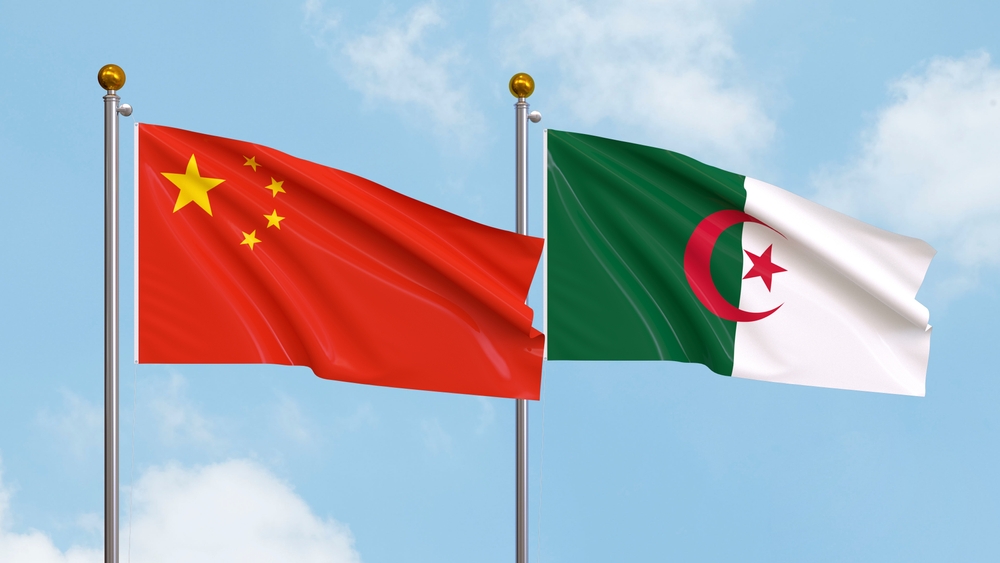A month after his visit to Russia, Algerian President Abdelmadjid Tebboune is currently in Beijing, the Chinese capital, on July 17th. The purpose of his visit is to engage in discussions with his Chinese counterpart, Xi Jinping, and other senior Chinese officials. The primary focus of these discussions is to strengthen economic cooperation between Algeria and China. Moreover, they will explore the possibility of Algeria joining the “BRICS” group and will address various regional and international matters of shared interest.
The significance of this visit lies in its timing, as it occurs during Algeria’s earnest efforts to expand its international options. Additionally, it takes place amid the escalating tensions between China and the United States on various matters related to bilateral relations and developments in the international arena, including the Russian-Ukrainian conflict.
Interconnected Factors
Algerian President Abdelmadjid Tebboune aims to solidify a policy that emphasizes a shift towards the East, specifically focusing on China and Russia. His forthcoming visit to China will further bolster Algeria’s prominent political and economic pivot, following previous visits to certain Gulf Cooperation Council countries and Turkey. This signifies a clear political direction driven by several interconnected factors, with a primary emphasis on economic considerations. The most crucial of these factors are as follows:
- Enhancing the Prospects of Joining the “BRICS” Group: During his visit to Russia on June 16th 2022, Algerian President Abdelmadjid Tebboune openly expressed his country’s desire to become a member of the “BRICS” group. He emphasized Algeria’s eagerness to expedite its entry into the organization and move away from the influence of the dollar and the euro, recognizing the substantial benefits it would bring to the Algerian economy. In a statement on August 7th, 2022, he reaffirmed Algeria’s interest in the BRICS countries, acknowledging their economic and political strength and suggesting that Algeria’s potential membership in this group of emerging economies could be achieved swiftly.
Despite President Tebboune’s statement indicating that Algeria is pursuing both political and economic dimensions in its attempt to join the “BRICS” group, the emphasis is increasingly shifting towards the economic aspect. This is due to the potential trade and economic benefits that membership can offer, particularly in deepening bilateral relations with the group, especially China, which stands as the world’s largest energy importer. Algeria sees the opportunity to gain trade facilitations and attract Chinese investments in its oil and gas industries, which would be advantageous for its economy.
In this regard, Algeria seems to place reliance on the positive messages conveyed by China, indicating its willingness to broaden the group’s membership to include other countries like Algeria. This was clearly evident in the statements made by the spokesperson for the Chinese Foreign Ministry, Mao Ning, on May 30, 2023, when she stated, “China supports the process of BRICS expansion and is ready to bring more like-minded partners into the big BRICS family.”
- Activation of the Comprehensive Strategic Partnership Agreement: On November 5, 2022, Algeria and China solidified their Comprehensive Strategic Partnership by signing the second five-year plan (2022-2026). This step marks an enhancement of the initial agreement signed between the two nations in 2014. The objective of these measures is to further broaden the scope of their bilateral relations, exemplified by their joint implementation plan for the Belt and Road Initiative, which was signed on December 5, 2022.
In this context, it can be observed that Algeria aims to capitalize on Beijing’s desire to expand trade with Middle Eastern countries. As per various estimates, trade between China and these nations amounted to $507.152 billion in 2022, showing a remarkable annual growth of 27.1%. The Chinese keenness to boost trade with these countries becomes evident when comparing the figure from 2022 to that of 2017, which stood at approximately $262.5 billion.
- Implementation of the “Belt and Road” Initiative: Algeria became a participant in the “Belt and Road” Initiative in 2018, and it is evident that both parties are eager to take further steps to achieve strategic gains through the activation of this initiative. This direction holds significant importance, not only because it drives the expansion of mutual cooperation between Algeria and Beijing in specific sectors, such as maritime and dry ports, which are foundational to the initiative, but also due to Algeria’s strategic position in relation to China. As one of the key gateways to the African continent, Algeria’s involvement in the initiative contributes to facilitating China’s access to the markets of West Africa and beyond.
- Consolidating Security and Military Cooperation: In the field of military cooperation, China has succeeded in enhancing its position as a major arms supplier to several countries worldwide, including Algeria. Numerous reports indicated that China sold HJ-12 anti-tank missiles to Algeria and also constructed three frigates and patrol boats for the country. The Algerian collaboration with Beijing, however, goes beyond military deals, extending into the realm of space. Algeria launched its first satellite, named “Alcomsat,” on December 10, 2017, from a space base in China. The satellite is designed for wireless communication, radio and television broadcasting, and internet services.
A Notable Pivot
In light of this, it can be inferred that Algerian President Abdelmadjid Tebboune’s visit to Beijing aligns with Algeria’s “pivot” towards the East, which includes both Russia and China. This pivot serves as a response to general Western pressure and, specifically, American pressure. However, it is notable that Algerian relations with China are more focused on economic and investment dimensions, possibly even more than the strategic aspects that define Algerian-Russian relations.
This policy may lead to increased tension in Algeria’s relations with many Western countries, particularly the United States, which has expressed significant concerns about China’s international actions, especially amidst escalating disputes on various issues, notably the Taiwan issue. However, it does not negate the fact that Algeria’s steps in this direction are part of a noticeable shift in foreign policy since President Tebboune took office on December 19, 2019.

